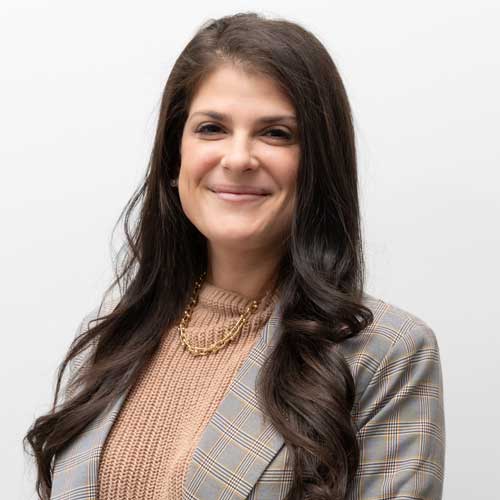Relapse can feel discouraging, but it’s essential to know that it’s a common part of recovery from addiction. You might think of it as a detour, not a dead end. The path to long-term sobriety isn’t always straight, and setbacks like relapse can offer valuable insights into what strategies need to be refined. So, why does relapse happen, and how can you overcome it? Let’s discuss these questions with a drug rehab in Albany.
Why Relapse Happens
Relapse is more than a moment of weakness—it’s often a response to unresolved challenges that surface during recovery. Addiction rewires your brain, and even after treatment, things like stress, emotional triggers, or specific environments can lead to cravings. These are your body’s conditioned responses, but the good news is they can be managed.
Stress is a significant factor. Everyday life doesn’t stop when recovery starts; without effective coping strategies, stress can push someone toward old habits. Likewise, exposure to triggers—people, places, or situations tied to past substance use—can stir up intense cravings.
Then there are the mental health challenges, such as anxiety or depression, that might not be fully addressed during initial treatment. This is why relapse happens, and it’s why ongoing support is so important when dealing with a substance use disorder.
A New Approach to Relapse
The first step in overcoming relapse is understanding that it doesn’t erase all your progress. At our drug rehab in Albany, we encourage our clients to view relapse as an opportunity to reassess and strengthen their recovery strategies. Here are a few practical ways to move forward after a relapse:
Reach Out for Help Immediately
Whether it’s a therapist, a friend, or a support group, reaching out right away can prevent a minor setback from turning into a more significant issue. Talking through what happened helps you identify the root causes, and in most cases, simply having support makes all the difference.
Identify Your Triggers
Was it a specific event or stressor that caused the relapse? A trigger for relapse can be anything from stressful situations to certain people or places. Once identified, you can work with your treatment team to create a plan for managing or avoiding them in the future.
Revisit Your Relapse Prevention Plan with Our Drug Rehab in Albany
If you’ve already created a relapse prevention plan, now’s the time to update it. This plan should include strategies for managing stress, a list of supportive people you can call, and specific steps to take when cravings arise.[1]
Consider Medication-Assisted Treatment (MAT) During Drug Rehab in Albany
MAT can be an effective tool in managing cravings and preventing future relapse. At Berkshire Mountain Health, we integrate MAT with cognitive behavioral therapy and other forms of treatment to provide a comprehensive approach to recovery.[2]
Removing the Shame Around Relapse
It’s important to remove the stigma that often surrounds relapse. Feeling shame or guilt after a relapse only serves to isolate you from the support you need. Instead of looking at relapse as a failure, try viewing it as part of the learning process.
Recovery is a lifelong journey; setbacks are a chance to strengthen your resolve and update your coping skills. At our addiction treatment center in Albany, we help clients shift their perspective on relapse.
Instead of focusing on what went wrong, we encourage focusing on what you can do differently next time. Remember, relapse doesn’t mean you have to start over from scratch—it’s an opportunity to build upon the progress you’ve already made.
How to Get Back on Track After Relapse
Getting back on track after a relapse involves a combination of renewed commitment and practical steps. It’s not about rushing back into recovery but about taking thoughtful, deliberate actions that reinforce your sobriety.
Strengthen Your Support Network
Leaning on your support network is essential. This could include joining new support groups, increasing the frequency of therapy sessions, or simply staying connected with those who understand what you’re going through.
Recommit to Self-Care
Sometimes, relapse is a sign that self-care has slipped off your radar. Things like getting enough sleep, eating nutritious meals, and exercising regularly help your body recover, both physically and mentally. These simple actions build resilience against future challenges.
Stay Mindful
Mindfulness-based practices help you stay present and manage difficult emotions or cravings. One simple practice is to take a few minutes each day to check in with yourself and acknowledge how you feel without judgment.
A Comprehensive Approach to Relapse Prevention with A Drug Rehab in Albany
At Berkshire Mountain Health, our relapse prevention approach goes beyond detox and immediate recovery. We help our clients build a full toolkit to handle the challenges of everyday life post-treatment.
A relapse prevention plan is one of the most effective tools in maintaining sobriety. It includes strategies like avoiding high-risk situations, developing healthy coping mechanisms, and setting realistic, actionable goals. This plan is customized for each individual and regularly updated based on their progress and challenges.
We also incorporate cognitive behavioral therapy (CBT) into our programs. CBT is especially helpful in addressing negative thought patterns that might lead to relapse. Focusing on how thoughts influence behaviors allows individuals to recognize and change the thought patterns that contribute to cravings and substance use.
Support Is Available—Call Our Drug Rehab in Albany Today
Relapse doesn’t mean the end of your recovery—it’s a part of it. Each person’s journey is unique, and setbacks are an opportunity to reassess and strengthen your approach to sobriety. If you’ve experienced a relapse, the most important thing is to seek help and move forward with the lessons you’ve learned.
At Berkshire Mountain Health, we’re here to support you at every stage of recovery. Our drug rehab in Albany offers comprehensive addiction services designed to address your physical, emotional, and mental health needs. Whether it’s through individual therapy, group sessions, or a customized aftercare plan, we’ll help you build a stronger, more resilient recovery.
Take the next step today. Reach out to Berkshire Mountain Health to learn more about how we can help you navigate recovery and prevent relapse.
Sources:
[1]https://www.ncbi.nlm.nih.gov/books/NBK551500/
[2] https://nida.nih.gov/publications/drugs-brains-behavior-science-addiction/treatment-recovery

Alexis earned both a B.S. in Psychology and a B.S. in Family and Child Sciences from Florida State University and an M.A. in Marriage and Family Therapy from the University of San Diego. She holds licenses in Marriage and Family Therapy in Florida, Connecticut, and Massachusetts and is also a member of the American Association for Marriage and Family Therapy (AAMFT).
Alexis works with families, couples, children, and groups and also has a sub-specialty in addiction and recovery. She utilizes an integrated, systemic approach to counseling; empowering people to define what is not working for them in their lives and to discover the possibilities for making life work. In doing this, clients are guided towards identifying their strengths, accessing their resources, tapping into their potential for success, and taking action toward achieving their desired goals.
Alexis also has extensive experience in the administration of behavioral health organizations. She has developed, built, and supervised several facilities encompassing all levels of care while leading them through state licensing and The Joint Commission accreditation process.



